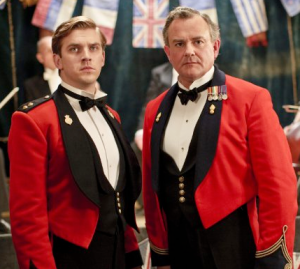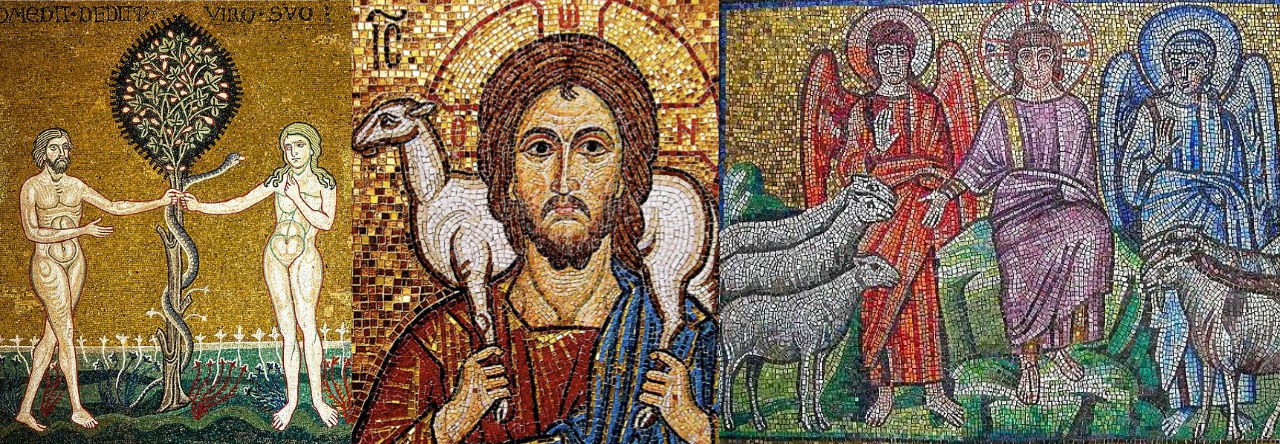 As an American, I find there is something distinctive about British programs. When my family lived in the United Kingdom we enjoyed access to all the offerings of the BBC and the commercial network or two that existed twenty-two years ago.
As an American, I find there is something distinctive about British programs. When my family lived in the United Kingdom we enjoyed access to all the offerings of the BBC and the commercial network or two that existed twenty-two years ago.
Returning to the States, we had to become content with viewing the occasional British import, mostly through the auspices of PBS. Since I watch far less television than I used to, I haven’t seen one of the current offerings that’s become quite popular.
Downton Abbey is essentially a soap opera which examines the lives of a noble family, and the myriad servants who attend to their needs. Contrasting their culturally different lifestyles is doubtless quite intriguing.
The reason I’m mentioning a program I’ve never seen, is because I read an interview with one of its co-stars, Hugh Bonneville. His response to the question “Did you make a New Year’s resolution?” was wonderful.
I’ve had the same resolutions for about 20 years, which is to read The Complete Works of Charles Dickens, and I’m only on about book number three. I’m a terrible reader, which is a great shame because literature is the lifeblood of everything, really, in terms of inspiration and nourishment of the soul.
C.S. Lewis often speaks about the value of reading the “classics.” One benefit he describes in “The Reading of Old Books,” is that they provide us with a grounded perspective in a rapidly shifting world. “Every age has its own outlook. It is specially good at seeing certain truths and specially liable to make certain mistakes. We all, therefore, need the books that will correct the characteristic mistakes of our own period. And that means the old books.”
Lewis apparently enjoyed Dickens. Below are a couple of passages where he refers to him in very good company. In his essay “Sir Walter Scott,” he writes:
. . . there are two things of which I feel certain. One is, that if we do overvalue art, then art itself will be the greatest sufferer; when second things are put first, they are corrupted. The other is that, even if we of all generations have first valued art aright, yet there will certainly be loss as well as gain. We shall lose the fine careless, prodigal artists. For, if not all art, yet some art, flows best from men who treat their work as a kind of play. I at any rate cannot conceive how the exuberance, the elbow-room, the heart-easing quality of Dickens, or Chaucer, or Cervantes, could co-exist with that self-probing literary conscience we find in [Walter Horatio] Pater or Henry James.
And, again, in Studies in Medieval and Renaissance Literature he praises Edmund Spenser’s The Faerie Princess, saying:
From the time of its publication down to about 1914 it was everyone’s poem—the book in which many and many a boy first discovered that he liked poetry; a book which spoke at once, like Homer or Shakespeare or Dickens, to every reader’s imagination.
Ironically, Lewis’ own writings have become classics, to which many of us return over and over. And, even though a month has passed since the traditional day for making New Year resolutions, I can’t think of a better one than planning to read the “complete works” of C.S. Lewis himself.

Hi Rob
Another classis that will forever be a favorite of mine, is ” The Pilgrim’s Progress” from John Bunyan.
Reading C.S. Lewis’ Mere Christianity was life changing to me.
Much love
Mia
I must make more time to read Lewis and cannot wait to read Narnia to my children when they are a little older.
When I started teaching in earnest (after my stay-at-home-mom days), my first principal made an enormous impact on me with the following advice: Find a lifetime author. I took him up on it. I chose CS Lewis. I’ve never been sorry. Reading his works for the first time, or reading them again (and again, and again and again) never fail to yield up conviction, delight, curiosity — the gamut. I love him. (and Dickens, actually) :) Thanks for this great post!
I love Dickens, Shakespeare, Sir Walter Scott, and Chaucer – probably because my dad loved them and read to us – such rich language and lessons of life. For some reason Spencer’s Faerie Princess found a niche in his memory, too… people talked about how children in rural areas weren’t educated well in the past, but the rich literature they studied in those one room school houses certainly passed the test of time.
My husband and I have both had the delight of reading all of Dickens. I only wish we could quote lines from some of his most memorable characters–and do it with a British accent. It would make for fun evenings with company (or without, for that matter).
Yes! It is amazing to begin to see (thank you GKC, Lewis and others for letting us stand on your shoulders & sharing your insights with us) how disproportionate and unbalanced the information is that we receive from modern authors. Like attempting to improve on the wheel by tossing the whole idea out and starting from scratch. I hardly read any books as a child, and I am now making up for it (thanks in no small part to audiobooks). After Lewis, Chesterton, MacDonald and Pascal (which I continue to study), I have slowly started to take in the classics, beginning with Dickens as well (among others). I am always amazed at the depth, insights and wisdom these “musty old books” and their authors offer. We have the 5-foot shelf of classic books (Oxford), and my husband just found an interesting book by John Mark Reynolds called Great Books Reader, The: Excerpts and Essays on the Most Influential Books in Western Civilization which we are eagerly awaiting. The nice thing about that collection (for us) is that it comes from a godly perspective, and includes an essay on the book. I figure if I like the excerpt I can read the book while I’m at it.
Great stuff, Robstroud.
Yes, there are wondrous treasures buried in those “musty old books.” And now, thanks to the digital age and public domain laws, they are even available to those who are reluctant to turn musty old pages!
Absolutely- what an amazing age we live in – all kinds of amazing, but plenty of great things to be grateful for. I’d never be able to “read” as much as I do if it weren’t for audiobooks + public domain. :)
“I can’t think of a better one than planning to read the “complete works” of C.S. Lewis himself.”
Did this ever come to fruition? Or frustration?
I’m still too busy with an overabundance of commitments to allow myself to make this sort of resolution. I would say it’s possible after “retirement,” but I doubt that I will ever experience what many consider the leisure (i.e. reading) oriented retirement, so who knows?